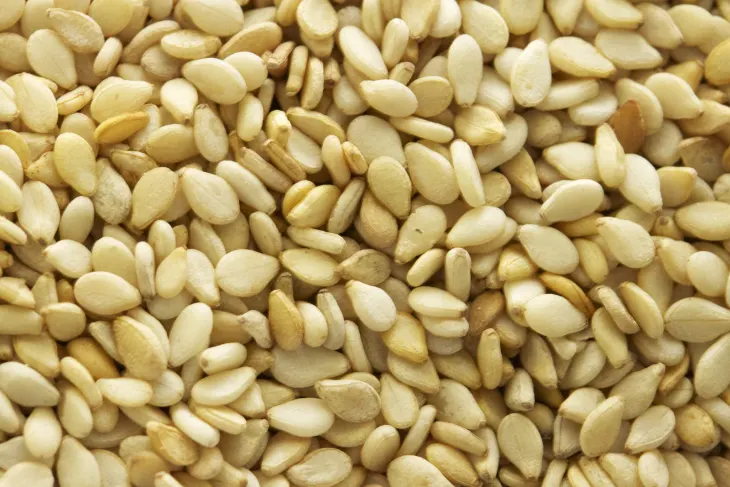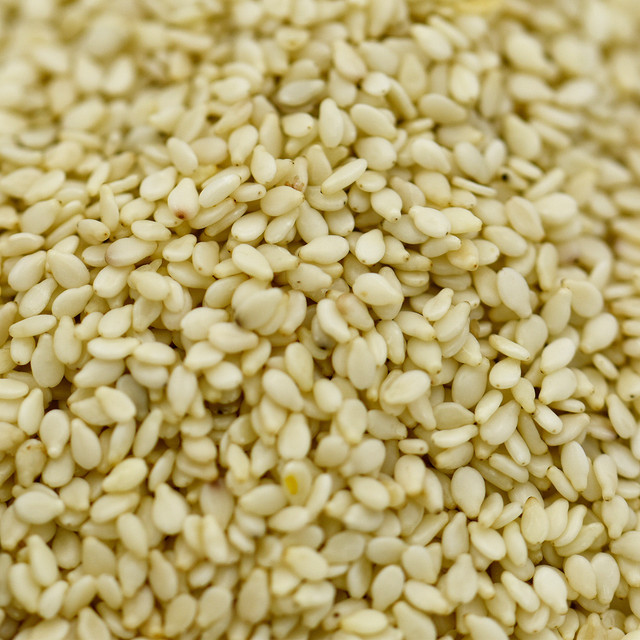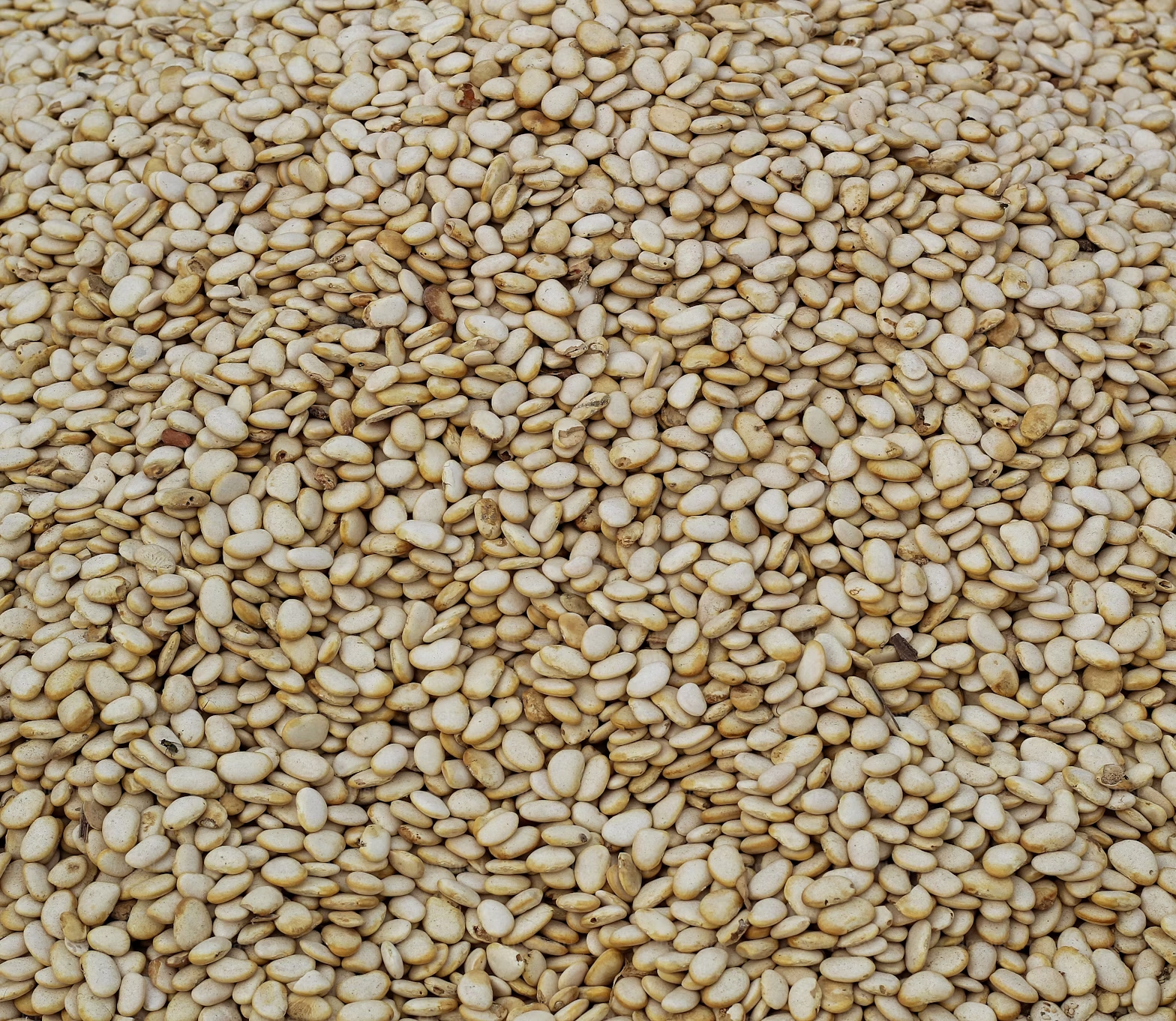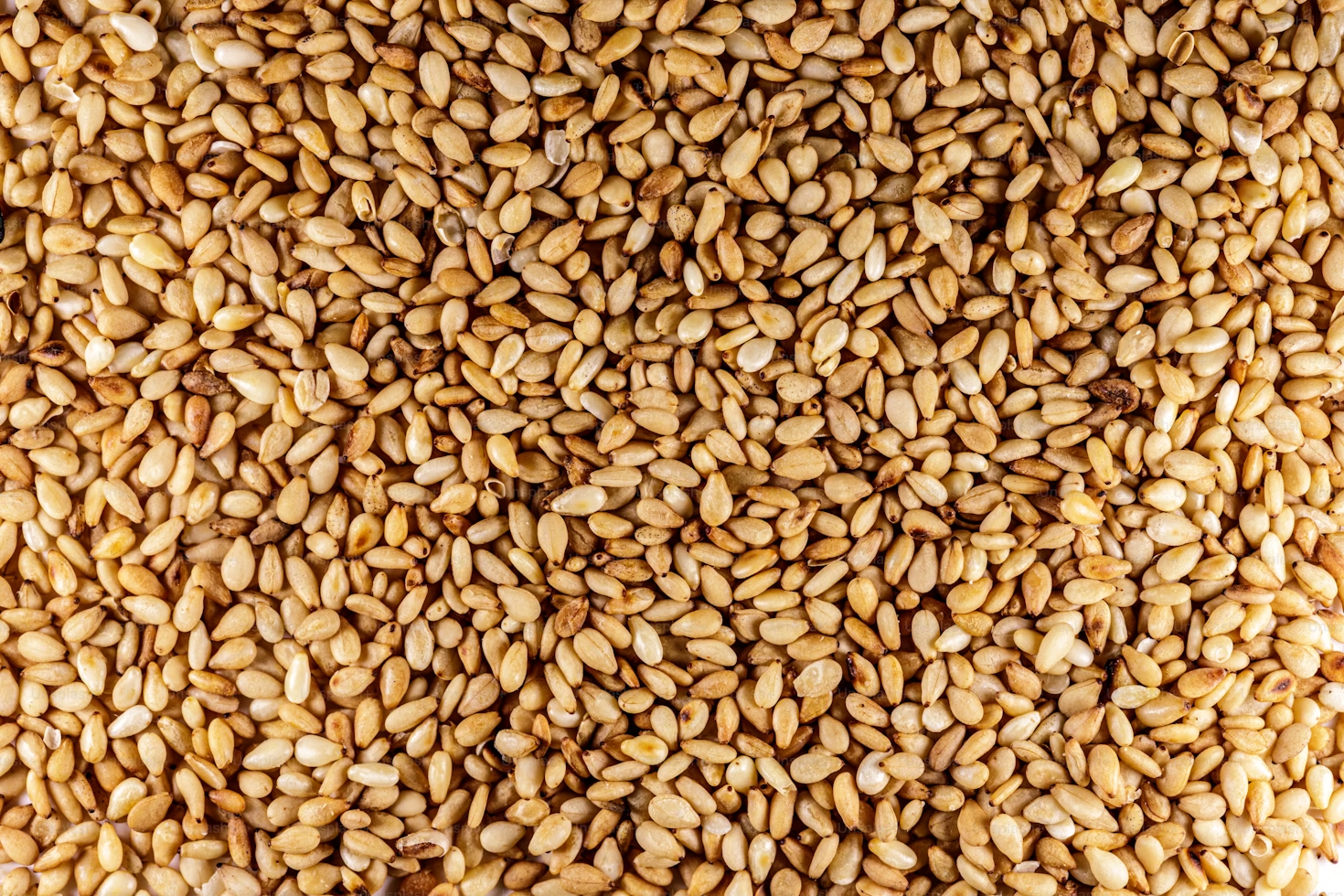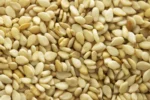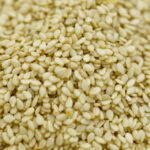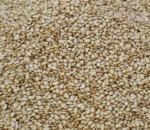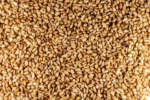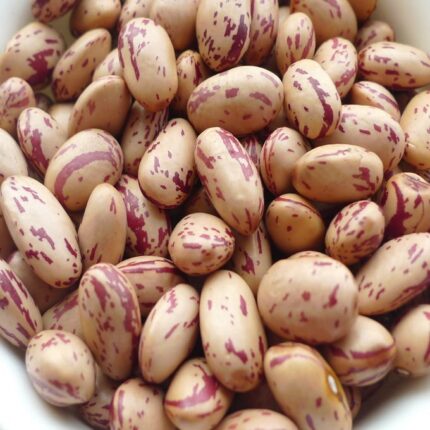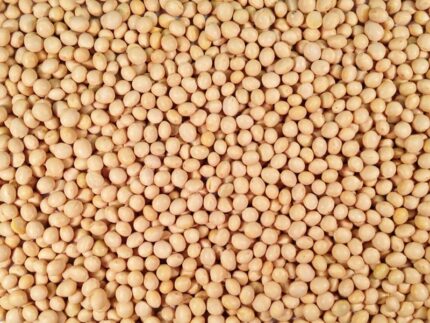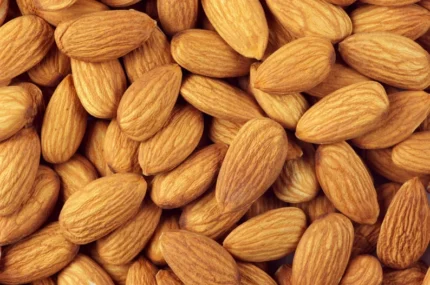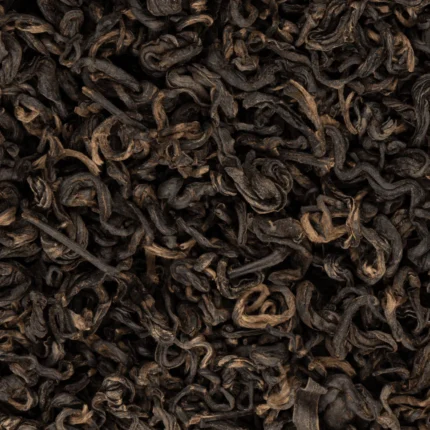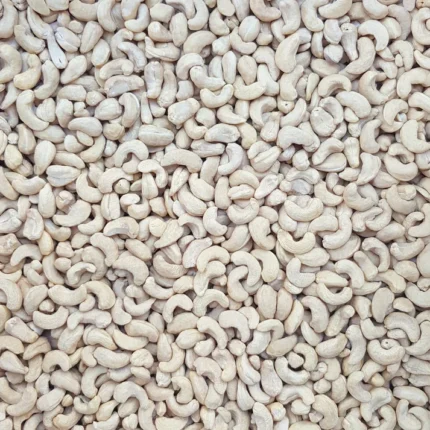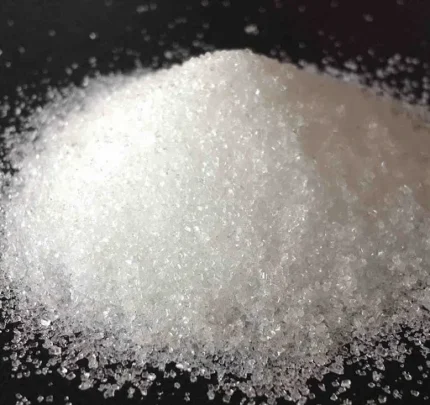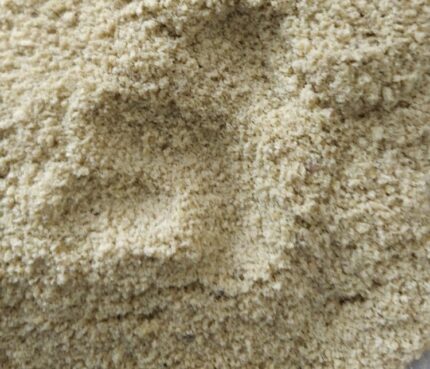Sesame Seeds
sesame seed, white, hulled
Nutrition Info
Calories: 17.04
| % Daily Value | ||
| Total Fat | 1.65g | 2.5% |
| Saturated fat | .25g | 1.2% |
| Trans Fat | 0g | 0% |
| Cholesterol | 0mg | 0% |
| Sodium | 1mg | .1% |
| Total Carbohydrates | .32g | .1% |
| Dietary fiber | .32g | 1.3% |
| Total sugars | .01g | 0% |
| Added Sugar | 0g | 0% |
| Protein | .55g | 1.1% |
| Vitamin D | 0mcg | 0% |
| Calcium | 2mg | .2% |
| Iron | .2mg | 1% |
| Potassium | .01mg | .3% |
| *The % Daily Values (DV) tells you how much a nutrient in a serving contributes to a daily diet. 2000 calories a day is used for general nutrition advice. | ||
Sesame Seeds Sesame seeds are small, nutrient-dense seeds that offer a range of health benefits. Rich in protein, fiber, and healthy fats, they are also packed with essential vitamins and minerals, including calcium, iron, magnesium, and zinc. These seeds contain powerful antioxidants, such as sesamin and sesamolin, which have anti-inflammatory properties. Widely used in various cuisines across the globe, sesame seeds can be found in whole form, as oil, tahini, or pastes, adding flavor, texture, and nutritional value to dishes. They are particularly beneficial for heart health, thanks to their high levels of polyunsaturated fats and plant sterols, and for digestive health due to their dietary fiber content. Furthermore, sesame seeds support bone health with their high calcium content and offer skin and hair benefits through nutrients like vitamin E and zinc. Versatile and delicious, sesame seeds enhance salads, baked goods, sauces, and marinades, making them a valuable ingredient in both traditional and modern recipes.

